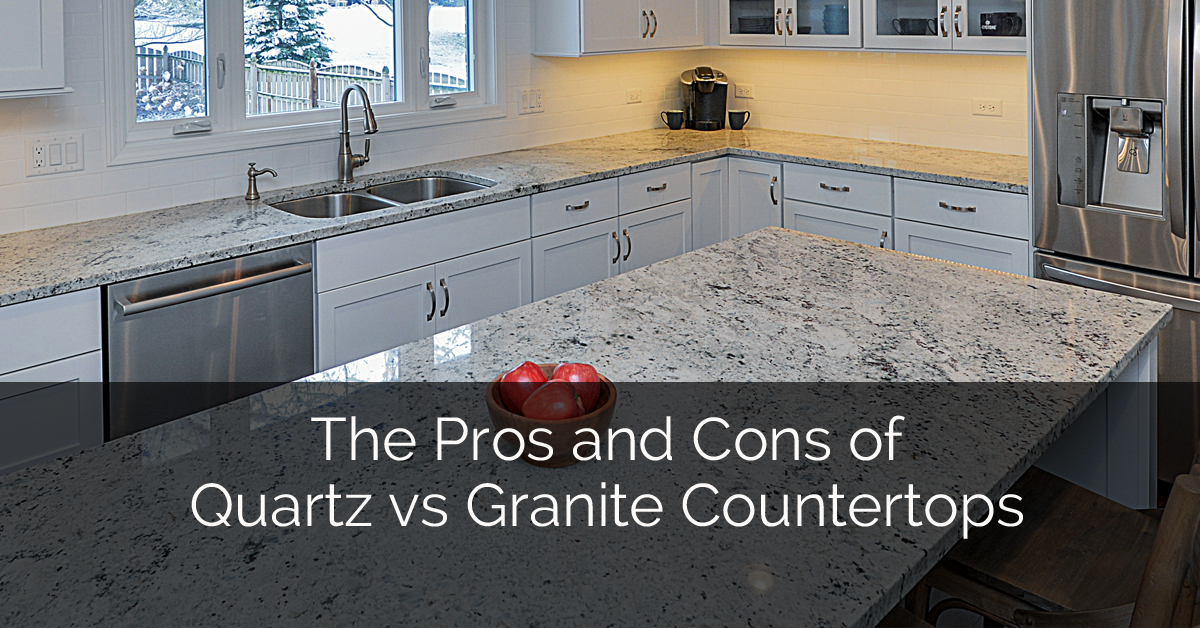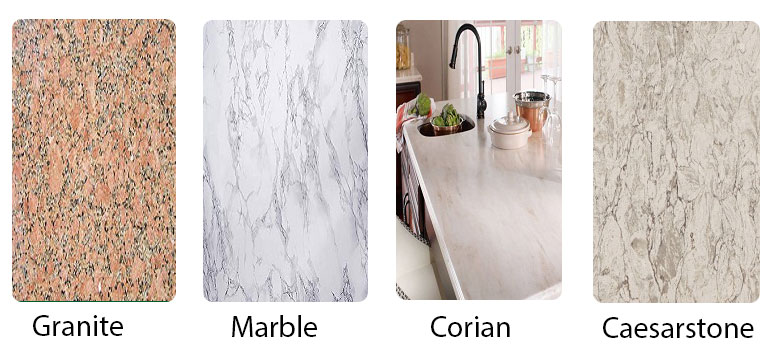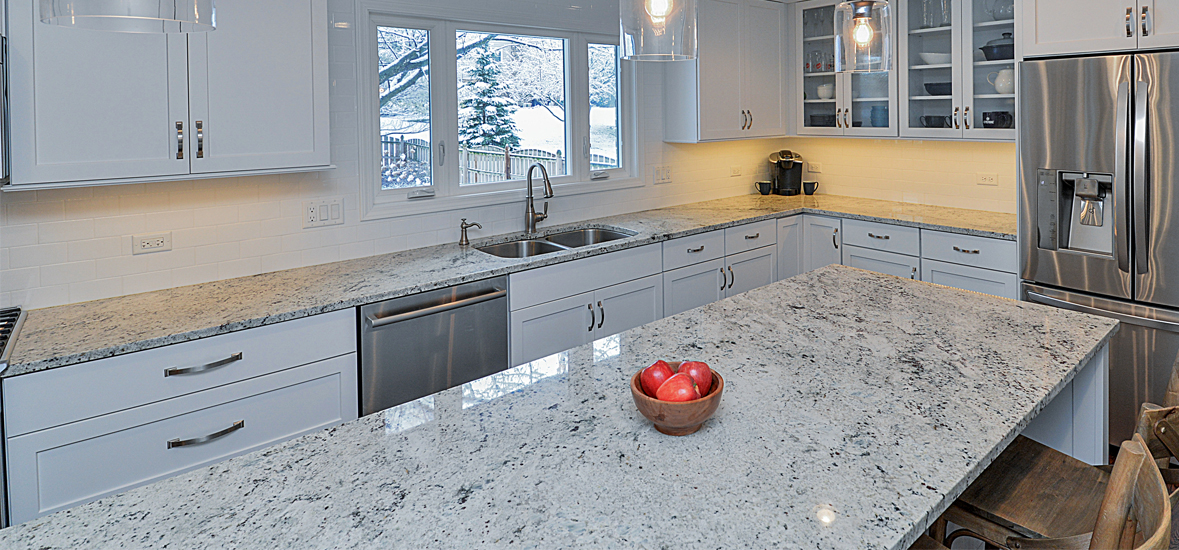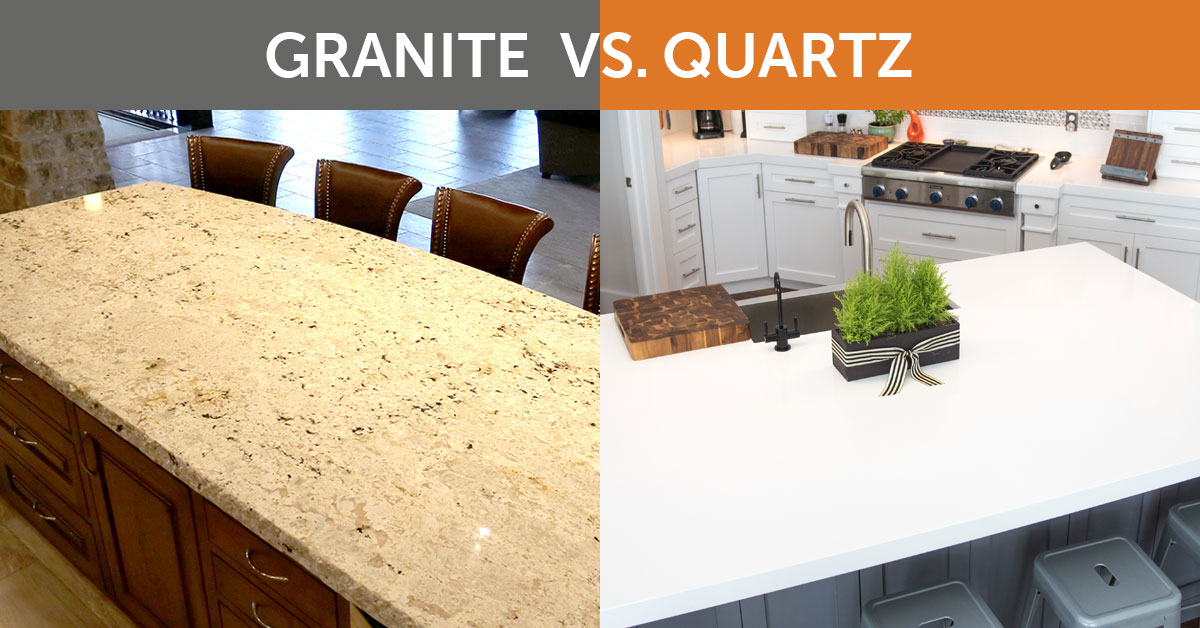Choosing the right countertop material for your kitchen is a crucial decision that impacts both the aesthetics and functionality of your space. Two of the most popular choices for kitchen countertops are quartz and granite. In this article, we’ll delve into the comparison of quartz countertops and granite countertops, exploring their differences in terms of appearance, durability, maintenance, cost, and environmental impact to help you make an informed choice for your kitchen.
Appearance: Quartz countertops are engineered stone surfaces, typically made by combining natural quartz crystals with resins and pigments. They offer a wide range of color and pattern options, making it easier to find a design that complements your kitchen’s style. Granite countertops, on the other hand, are natural stone surfaces, known for their unique and intricate patterns. Each granite slab is one-of-a-kind, offering a distinct look.
Durability: Both quartz and granite are highly durable materials, but they have different properties. Quartz is more resilient to staining and scratching because it is non-porous and sealed during manufacturing. Granite is porous, and while it can resist heat, it may require more frequent sealing to prevent staining.
Maintenance: Quartz countertops require minimal maintenance. They are easy to clean with just soap and water and don’t need sealing. Granite countertops need periodic resealing to maintain their resistance to staining and moisture absorption, making them slightly more high-maintenance.

Cost: When it comes to cost, quartz countertops are typically less expensive than high-end granite options. However, the cost can vary depending on the specific design, manufacturer, and region. While granite may have a higher initial cost, the unique beauty it offers can justify the investment for many homeowners.
Environmental Impact: Quartz countertops are considered more environmentally friendly because they are partially composed of recycled materials and use less natural stone. Granite is a natural resource, and the mining and transportation of granite slabs have an environmental impact. However, the durability and longevity of both materials can offset some of these concerns.
Weight and Installation: Granite countertops are heavier than quartz, which can make installation more challenging and may require additional support in some cases. Quartz countertops are easier to handle and install due to their lighter weight.

Resilience to Heat: Both quartz and granite are heat-resistant, but quartz is more forgiving in this aspect. Quartz can withstand temperatures of up to 400°F (200°C), while granite can tolerate higher temperatures. However, it’s still recommended to use trivets or hot pads to protect the surface.
Variety of Edge Profiles: Granite countertops offer a wide variety of edge profiles that can be customized to your preference, adding a unique touch to your kitchen. While quartz countertops also have edge options, they may not be as extensive as those available for granite.
Longevity: Both quartz and granite are long-lasting materials. With proper care and maintenance, they can provide a lifetime of use. It’s essential to follow manufacturer recommendations for care to ensure the longevity of your chosen countertop.
Seam Visibility: The seams in quartz countertops are often less visible due to their consistency in color and pattern. Granite, with its natural variation, may have more noticeable seams, especially if the countertop design requires multiple slabs.
Edge Chip Resistance: Granite countertops are more susceptible to edge chipping due to their natural stone composition. Quartz countertops, with their resin binders, tend to be more chip-resistant. Be cautious with sharp impacts on granite edges.
Personal Preference: Ultimately, the choice between quartz and granite comes down to personal preference. Some homeowners prefer the uniformity and design options of quartz, while others appreciate the natural beauty and uniqueness of granite. Consider your lifestyle, aesthetic preferences, and maintenance habits when making your decision.

The choice between quartz and granite countertops for your kitchen depends on various factors, including your budget, design preferences, maintenance willingness, and environmental concerns. Both materials have their strengths and unique qualities, making them viable options for different homeowners. It’s essential to weigh the pros and cons of each to determine which one best suits your specific needs and enhances the overall appeal of your kitchen.
Quartz vs granite

Pros and Cons of Quartz vs Granite Countertops: The Complete

Quartz vs Granite vs Marble vs Corian vs Caesarstone for Countertops

Pros and Cons of Quartz vs Granite Countertops: The Complete

Quartz or Granite – Which One Makes a Better Countertop Material

Related articles:
- Quartz Countertops Tile Backsplash
- Beveled Edge Quartz Countertop
- Quartz Countertop Choices
- Quartz Countertop Types
- Grey Brown Quartz Countertops
- Quartz Countertops Pattern
- Quartz Countertops DIY
- Kitchen Island Quartz Countertop
- Quartz Countertops In Bathroom
- White Engineered Quartz Countertops